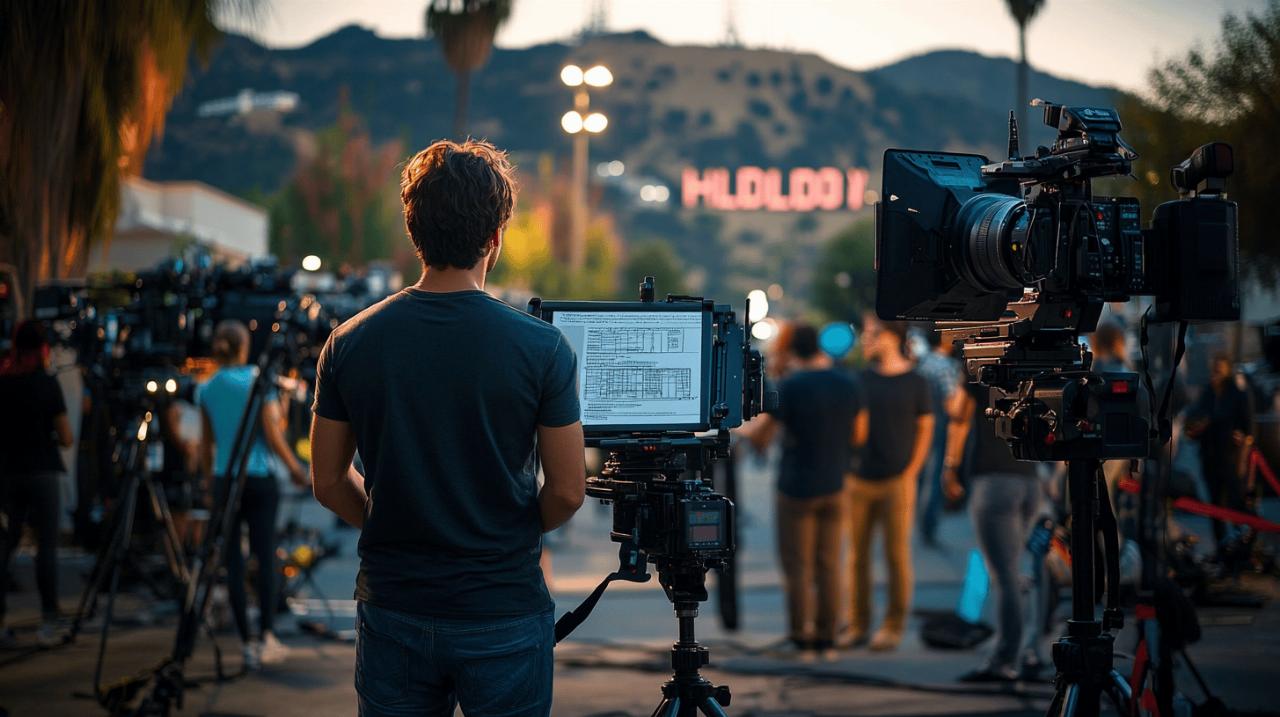Breaking Into the Director’s Chair: Become a Director Without a Degree Through the Paths Carved by Hollywood Autodidacts
Self-taught success stories: directors who skipped film school
The film industry has long been perceived as requiring formal education, but a closer look reveals some of cinema's most innovative voices never set foot in a film school. Robert Rodriguez, the maverick indie filmmaker, exemplifies this path with his practical guide 'Rebel without a Crew' becoming essential reading for aspiring directors seeking alternative routes into the industry. Rodriguez's journey from low-budget productions like 'El Mariachi' to visually stunning works such as 'Sin City' and 'Alita: Battle Angel' demonstrates the potential of self-taught filmmaking. Through his El Rey network and interview series 'The Director's Chair,' Rodriguez has created a platform showcasing conversations with other directorial talents who've carved unique paths into Hollywood.
Stanley Kubrick's Journey from Photography to Filmmaking Mastery
Stanley Kubrick represents perhaps the most celebrated example of an autodidact director. Beginning his visual storytelling career as a photographer for Look magazine, Kubrick developed an exceptional eye for composition and framing that would later define his cinematic style. Without formal training, he taught himself the technical aspects of filmmaking through practical experimentation and voracious reading. His methodical approach to learning the craft independently resulted in some of cinema's most visually striking and intellectually challenging works, from '2001: A Space Odyssey' to 'The Shining.' Kubrick's journey reveals how transferable skills from related fields can provide a foundation for directorial excellence.
Quentin tarantino's video store education and unique storytelling voice
Few self-taught directors have made such an indelible mark on cinema as Quentin Tarantino. His education came not from university lectures but from working at Video Archives in Manhattan Beach, where he absorbed thousands of films across genres and eras. This encyclopedic knowledge of cinema became his film school, allowing him to develop his distinctive style through studying the techniques of directors he admired. Tarantino, who regularly appears in Rodriguez's 'The Director's Chair,' has frequently discussed how this immersive, self-directed education shaped his approach to dialogue, narrative structure, and visual homage. His success demonstrates how passion and dedication to studying the medium can replace formal education.
Building your directorial toolkit outside traditional education
Aspiring directors without formal training must develop alternative approaches to mastering their craft. Christopher Nolan, whose directing techniques have been extensively analyzed, began by making short films with friends on weekends, gradually building technical knowledge through hands-on experience. Similarly, Neill Blomkamp developed his distinctive visual style through work in visual effects before transitioning to directing, proving that adjacent industry experience can provide valuable transferable skills. These directors show that commitment to continuous learning and practical application often matters more than formal credentials.
Developing visual storytelling skills through independent projects
Independent projects serve as crucial learning laboratories for self-taught directors. Sean Baker's approach to shooting 'Red Rocket' on 16mm film illustrates how constraints can foster creativity and technical growth. Edgar Wright similarly developed his distinctive writing and directing style through persistently creating short films and comedy sketches before his breakthrough features. These examples demonstrate that consistently producing work—regardless of budget or scale—provides invaluable learning experiences that formal education cannot replicate. Each project becomes an opportunity to experiment with visual language, develop problem-solving skills, and refine one's directorial voice.
Mastering technical knowledge through on-set experience and mentorships
For those without formal training, on-set experience becomes an irreplaceable education. Gil Bettman's training on directing action sequences with small budgets offers specialized knowledge that complements practical experience. Many successful autodidact directors began in adjacent roles—as cinematographers, editors, or writers—learning the director's craft through observation and collaboration. Edward Burns, who created a feature film for just $9,000, exemplifies how limited resources can actually accelerate learning by necessitating creative solutions to technical challenges. These experiences often provide more applicable knowledge than theoretical classroom instruction.
Launch platforms: how autodidact directors get their start
 Self-taught directors need strategic platforms to showcase their talents. Robert Rodriguez famously launched his career with 'El Mariachi,' a Spanish-language action film made for approximately $7,000, which caught industry attention through its resourceful filmmaking and innovative visual approach. Similarly, Edward Burns' ultra-low-budget filmmaking proved that compelling storytelling could triumph over financial limitations. These examples demonstrate that creative problem-solving and distinctive vision often matter more to audiences and industry gatekeepers than a filmmaker's educational background.
Self-taught directors need strategic platforms to showcase their talents. Robert Rodriguez famously launched his career with 'El Mariachi,' a Spanish-language action film made for approximately $7,000, which caught industry attention through its resourceful filmmaking and innovative visual approach. Similarly, Edward Burns' ultra-low-budget filmmaking proved that compelling storytelling could triumph over financial limitations. These examples demonstrate that creative problem-solving and distinctive vision often matter more to audiences and industry gatekeepers than a filmmaker's educational background.
Film Festivals as Career Gateways for Emerging Talent
Film festivals remain crucial launching pads for directors without traditional credentials. These venues democratize opportunity, evaluating work on its merits rather than the filmmaker's resume. Robert Rodriguez's breakthrough came when 'El Mariachi' screened at the Sundance Film Festival, where its inventive approach to action filmmaking on a minimal budget captivated audiences and industry professionals alike. For self-taught directors, festivals provide not only exhibition opportunities but also essential networking connections with producers, distributors, and fellow filmmakers who can support career development outside traditional industry pathways.
Leveraging Short Films and Online Content to Demonstrate Directorial Vision
The digital era has created unprecedented opportunities for self-taught directors to showcase their work. Online platforms allow filmmakers to build audiences and demonstrate their directorial vision without institutional backing. Neill Blomkamp's journey from creating short films and commercials to directing 'District 9' illustrates this modern pathway. His self-produced short films demonstrated his distinctive visual style and storytelling approach, attracting industry attention that led to feature opportunities. Similarly, many contemporary directors use YouTube, Vimeo, and social media to build portfolios that can bypass traditional gatekeepers entirely.
Learning from the Masters: Case Studies in Self-directed Education
The careers of successful autodidact directors provide valuable blueprints for aspiring filmmakers. John Carpenter, Francis Ford Coppola, and Guillermo Del Toro—all featured in Robert Rodriguez's 'The Director's Chair'—offer insights into self-directed learning approaches. While each took different paths, common threads emerge: relentless self-education through watching films analytically, practical experimentation with available resources, and persistent creation despite obstacles. These directors demonstrate that the self-taught path, while challenging, often produces distinctive voices precisely because they develop outside conventional frameworks.
Analysing Spielberg's Journey from Amateur Films to Blockbuster Success
Steven Spielberg's evolution from making amateur 8mm films as a teenager to becoming one of cinema's most successful directors offers a masterclass in self-directed learning. Though he briefly attended California State University, Spielberg's real education came through making short films and analyzing the techniques of directors he admired. His persistence led to television directing opportunities, where he developed the technical efficiency and visual storytelling skills that would later define blockbusters like 'Jurassic Park' and 'West Side Story.' Spielberg's journey illustrates how combining practical experience with dedicated study of cinema can replace formal education.
Luc Besson and the European Approach to Directorial Apprenticeship
The European film industry has traditionally offered alternative pathways to directorial careers, as exemplified by French filmmaker Luc Besson. Without formal film school training, Besson began working on film sets in various capacities, absorbing the craft through observation and practical involvement. This apprenticeship approach allowed him to develop both technical expertise and a distinctive visual style before directing his breakthrough film 'The Big Blue.' Besson's journey highlights how immersion in production environments, coupled with the European cinema's often more flexible approach to credentials, can provide a comprehensive directorial education outside academic institutions.
